Video Courtesy: youtube.com/ted
The world today;
Is experiencing a dramatic change in age demographics. Considering America as a prime example, it is estimated – In the year 2019, the group of people of age older than 65 will outnumber the group of those younger than five.As life expectancy increases, the number of people living with different chronic conditions and functional impairments, for instance, dementia, diabetes and the inability to manage household chores with growing age are further increasing.
People belonging to the “old age” group are more likely to suffer from chronic diseases and require more care and attention. In such times, the need of the hour is to discover and develop solutions that ensure people’s healthcare expectations, preferences as well as their needs. This leads us to envision the potential of ‘healthcare at home services’ that can benefit people of all age groups to take care of their medical situations independently with ease.
With rapidly progressing technology, the potential for transforming healthcare at home will also grow tremendously. Healthcare organizations and institutions will be able to provide exceptional levels of patient care along with the comfort of home. This will promote greater patient satisfaction and improvement of cost control in healthcare services. As per M&M, home healthcare is expected to reach $349.8 Billion from $227.5 Billion by 2020 globally, at a CAGR of 9.0% during the forecast period.
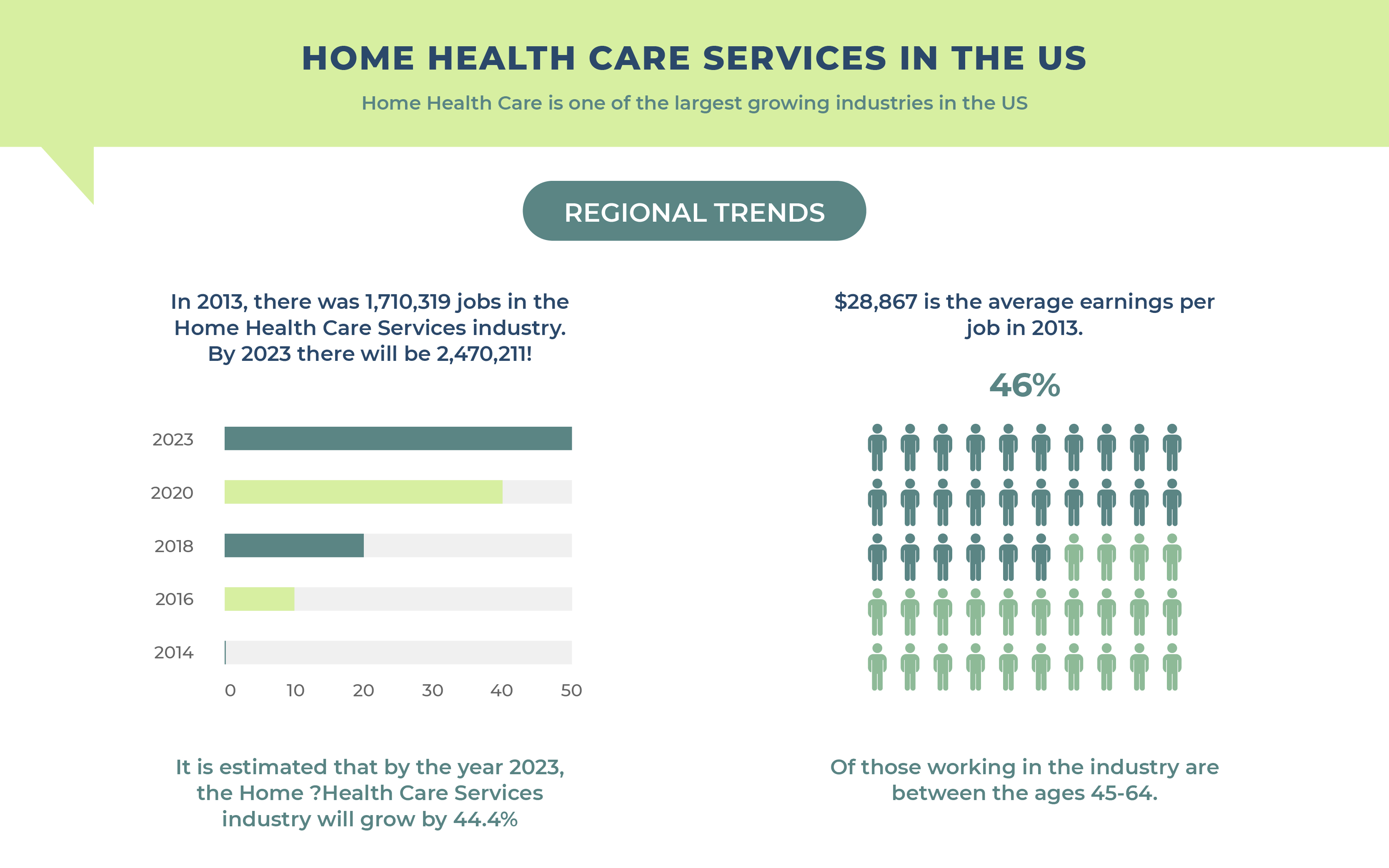
Elderly and ailing patients might not have the resources and energy to visit doctors every now and then, which consequently leads them to choose the option of healthcare at home. Due to this, healthcare companies are always competing with each other in the race to adapt to the increasingly digitized world.
Specifically talking about the US, the healthcare organizations are well aware of the issues prevailing such as the need for increased care for home treatments of the aging population, mostly due to mobility and budget issues. The only savior that can aid in such a situation is technology, given that it is implemented correctly.
While working with technology, it is vital for home healthcare organizations to choose the right option to achieve the desired results, such as increasing efficiency while providing patients with the utmost care and affordable solutions.
What Constitutes the Spectrum of Home Healthcare?
Other than providing healthcare services for the elderly, healthcare at home is also useful for patients who need constant medical care and treatment once they get back to their homes from the medical facility or hospital. Home healthcare makes it possible for people to receive a variety of medical services in their homes. Healthcare at home can be beneficial for people dealing with different conditions. Whether the patient is an individual recovering from an illness after a hospital stay or someone who is disabled, old or suffering from a chronic disease, healthcare at home can be the right option in such situations.
 Healthcare at home allows people to get any kind of treatment available; be it therapeutic or nursing or even routine medical assistance. According to a survey by Canadian Home Care Association, with the aid of healthcare services at home, there has been a decline of around 72% in emergency department visits, this has also resulted in the reduction of hospital admission rates.
Healthcare at home allows people to get any kind of treatment available; be it therapeutic or nursing or even routine medical assistance. According to a survey by Canadian Home Care Association, with the aid of healthcare services at home, there has been a decline of around 72% in emergency department visits, this has also resulted in the reduction of hospital admission rates.
Healthcare at home comprises of the following factors:
• Home Assistance
The primary focus of healthcare at home is for people to get medical support at home rather than spending time in a medical facility. Healthcare at home allows people to get the freedom of staying at their residential facility rather than opting for long-term nursing care at hospitals. With home assistance, medical professionals can assist patients who are incapable of conducting daily activities with help for tasks like food preparation, basic housekeeping, and emergency measures. This can be done until the patient can do all such tasks by themselves.
Home assistance also allows medical professionals to take care of medical and psychological assessments while allowing individuals to learn about pain management, disease education, and physical therapy, etc.
• Home Care Agencies
Home care agencies keep their focus on providing medical expertise in the form of healthcare professionals at a patient’s home. In such cases, medical professionals or doctors are sent to a patient’s house to treat their injuries or illnesses. Once the health condition of the patient is restored, the need for medical professionals end and their services are discontinued thereafter.
• Home Health Care Workers
Other than expert doctors, there are certain cases where other medical professionals are involved in home healthcare programs such as nurses, physiotherapist, nutritionist, occupational therapist, etc. The demand for such professionals is expected to significantly increase in the next decade as people of all age groups are growing more conscious of healthy lifestyles.
Benefits of Healthcare at Home
Healthcare at home can be beneficial for many reasons including but not limited to the following ones. Even when the patient is not in a condition to visit the hospital, home healthcare professionals can be of great help. They are specially trained and qualified to provide treatment while assessing the safety as well as risks at the patient’s home itself. They can also offer simple suggestions and corrections for the patient’s well-being, such as the medicines to keep in handy for emergencies or recommendations for immediate ambulance assistance etc.
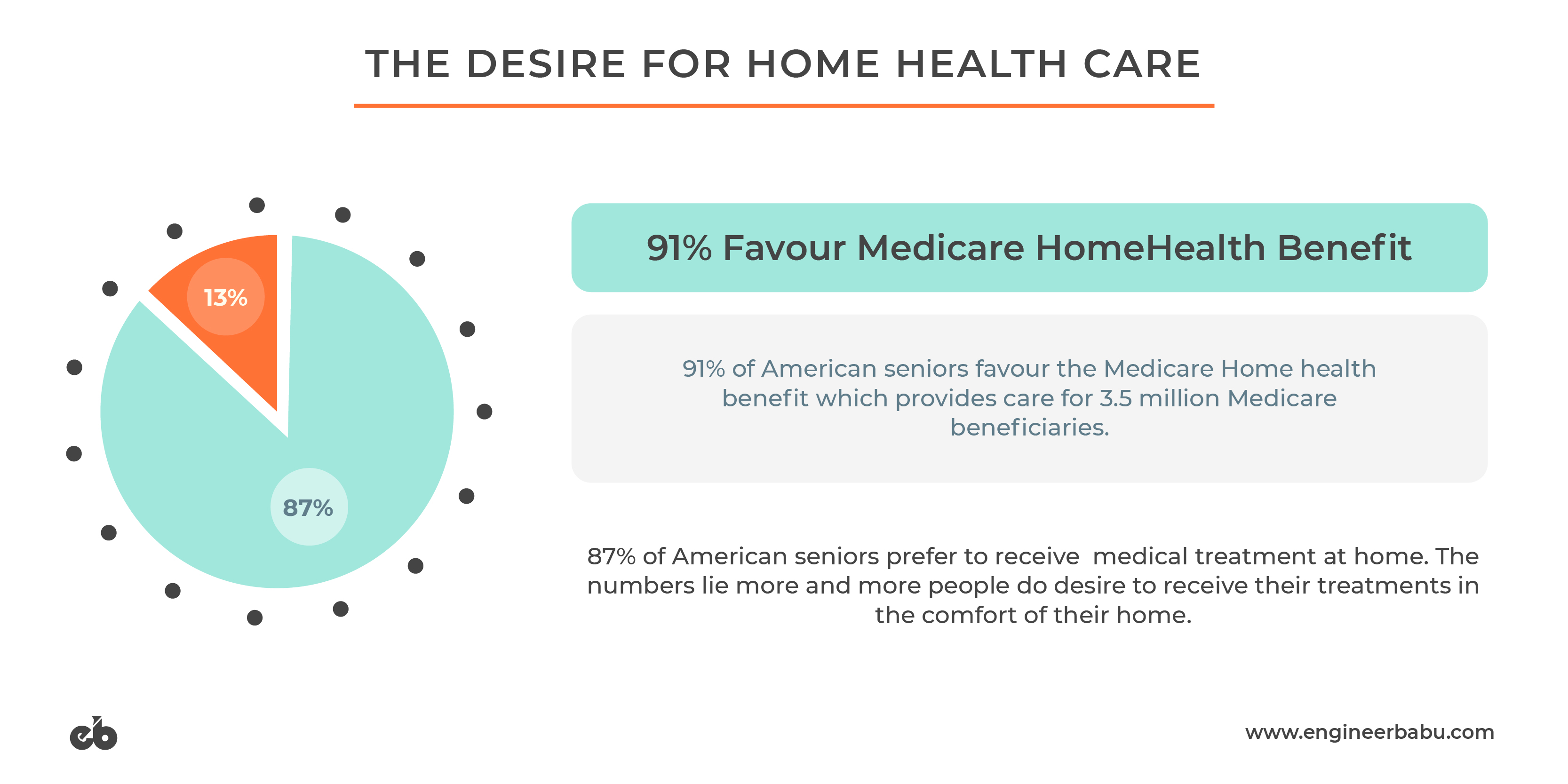
- Activities of daily living are supported in-home care too. These activities can include any basic necessity such as bathing, medicine reminders as well as grooming, etc. Such facilities allow elderly patients to get regular help along with their personal care requirements while maintaining a high quality of life for them.
- Expert nursing care at home is one of the significant benefits of healthcare services at home. Skilled medical professionals can carry out specific critical medical procedures at home with the help of supervised nurses who are certified and hold knowledge about technically advanced medical equipment. Healthcare at home allows your loved ones to get the personalized care that they need at their doorstep.
- Dietary and nutrition support is a part of home healthcare. Patients who suffer from certain diseases and are discharged from the hospitals after treatments, often grow very weak as they lack nutrition. Their problems can worsen with ageing, illness, and injury. Healthcare at home may include dietary and nutritional counselling along with home-cooked meals that can prevent your loved ones from lack of nutrition.
- Multiple medical prescriptions can turn to be confusing. Home healthcare experts can help your loved ones to consume the right medicines at the right time to control their medical conditions and prevent the intake of wrong drugs.
- When home care is provided to patients with chronic health issues such as diabetes or pneumonia, clinical trials have turned out to be better with fewer complications according to researchers. Healthcare at home can result in better health outcomes. Moreover, home healthcare allows patients to get treated in a better manner as it provides one-on-one support for individuals. Such personalized and skilled care strengthens the bond between healthcare professionals and their clients.
What’s Driving this Change in Home Healthcare Services?
Companies focusing on providing home healthcare services rely on automation heavily as it allows to ensure that the technology used in the process remains invisible and will enable them to deliver the best care for the users. Due to this factor, more and more home healthcare providing companies are discovering the potential value of automation and optimization as they need to stay competitive in the field.
Automated appointment scheduling is one of the examples of automated processes that result in increased efficiency. Leading technologies like Artificial Intelligence can help healthcare businesses in providing better organized patient-centric services.
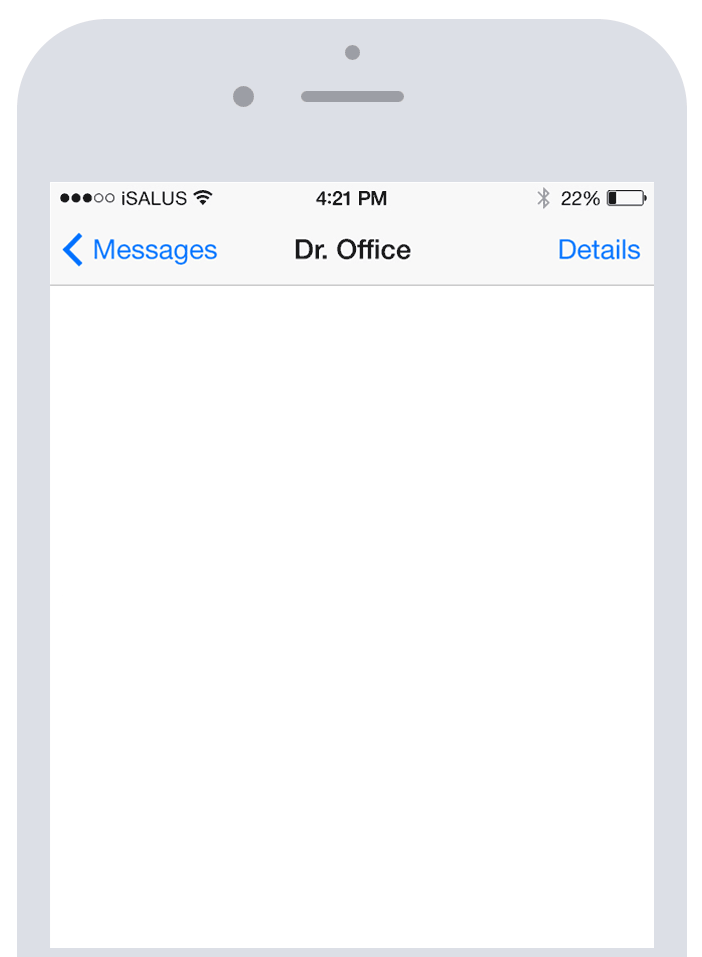
For instance, medicines and equipment required by the patients can be determined in real-time with technology. Along with this AI can allow the feature of predictive caregiver scheduling and appointment duration along with predictive routing for travel in case of emergencies. It can also improve customer service through predictive cancellation to avoid no-show appointment prevention.
The whole purpose of automation in home healthcare is to streamline the overall processes such as scheduling and providing services as and when needed, along with all the necessary equipment, thus, improving the patient care at an accelerating pace. This way, all the hassle of fixing random appointments can be eliminated while increasing the productivity of the overall system.
Recommended Read: Blockchain in Healthcare: Opportunities, Challenges, and Applications
The power of the latest ground-breaking technologies like Blockchain and AI can change a lot in the healthcare sector as by resolving current issues and helping patients to get the best experience when it comes to home healthcare. Healthcare organizations are getting aware of the benefits that technology can provide them such as finishing basic tasks and saving time.
5 Technologies Reforming Home-Healthcare
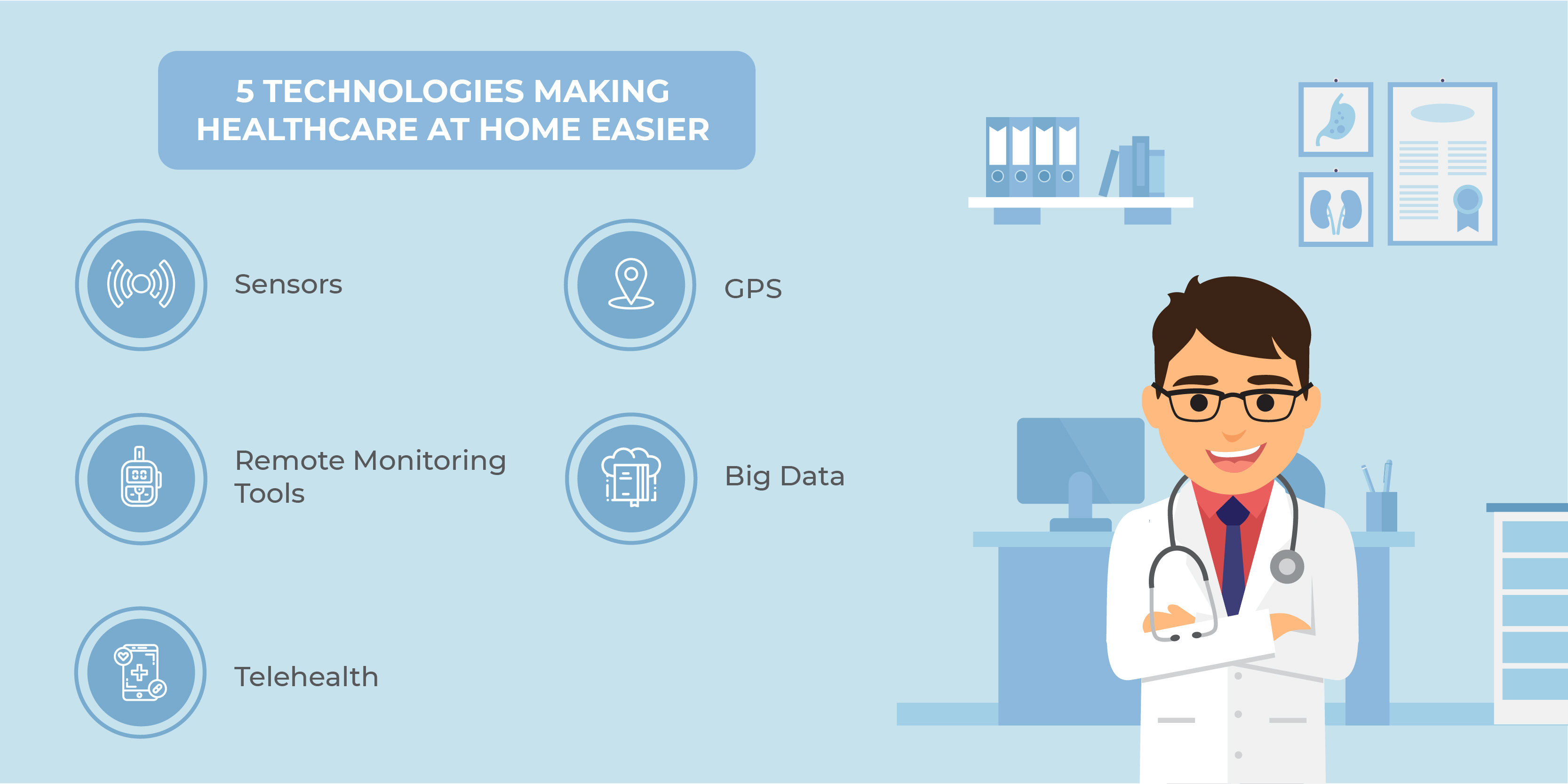 1. Sensors
1. Sensors
According to Kalorama information, sales for remote patient monitoring was estimated to around $29.7 Billion in the year 2014 out of which a good part of the demand was accounted for home healthcare facilities and services. Eldercare providers have picked up interest in the home healthcare treatments rather than shifting people to another treatment facility.
As per the trend, sensor technology could be placed in home premises, around doors, windows as well as the patient’s appliances and equipment. These sensors can provide alerts to caregivers in case of any abnormal activity.
They can also track and send notifications if the patient misses their meals. This can be particularly important for patients dealing with diseases such as Alzheimer’s. Such patients can remain at home, and their activities can be monitored via mobile healthcare apps as well as sensors.
2. GPSIn cases of emergency, such as when senior citizens are away from home for a long time, GPS tracking can help their families, healthcare workers or law enforcement bodies to locate them quickly. Technologies with features such as mobile alert services also allow these devices to follow a hybrid approach that enables people to find the elderly even in places where GPS might not be available such as garage parking and indoors. It can also help by automated calling for assistance in case users fall.
Moreover, in need for emergency health services, there can be a difference of life and death concerning calling the closest emergency squad and rapid dispatching. GPS tracking becomes and much-needed option in emergency business service.
3. Remote Monitoring Tools
Regular health monitoring is not an option but a necessity when it comes to elderly patients. Many devices are available these days which can be connected to smartphones to help reduce the costs as well as the time that is consumed when it comes to doctor visits in endangered health situations.
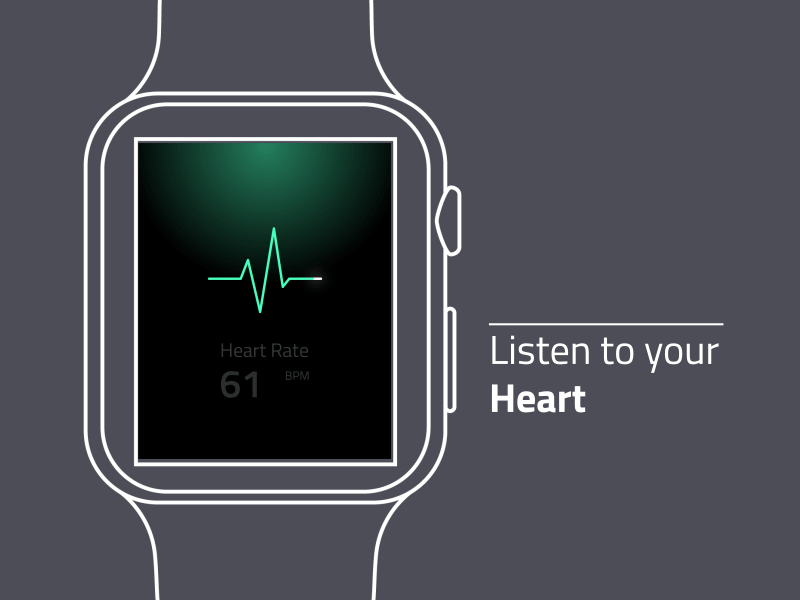
Technology has enabled different options in the form of fitness bands that can keep a regular track of sleep, diet, number of steps, etc. Along with these, there are many other devices which can be used for the purpose of tracking and measuring glucose and blood pressure levels along with heart rate monitoring and other measurements. Such tools allow the patient’s family members as well as nurses and doctors to keep a detailed track of their daily healthcare needs and eliminate the need of calling a doctor time and again.
4. Big DataHome healthcare relies highly on the data available from multiple resources and its analysis to gain vital insights for the right kind of treatment. Some home health services analyze data in massive amounts and use their outcomes to take preventive measures even before a medical situation can turn into a problem.
Big-data enabled sensor can detect the regular activity levels such as sleep patterns etc. and inform the caretaking authorities to take immediate action concerning any abnormality.
5. TelehealthTelehealth systems are a boon to the healthcare industry as they provide people with the ability to use phones and other digital systems to connect patients with doctors and specialists. Moreover, the promising advances in these systems can help the disabled or elderly citizens from traveling to-and-fro to healthcare facilities. Devices such as smartphones and iPads with a simple internet connection can make it easier for the people to implement telehealth and make results easier to understand. They allow doctors to monitor patients from different places and share the outcomes in real time.
3 Applications Driving Healthcare Innovation
Constantly evolving mobile technology has led us to implement new and improved ideas to reality. Healthcare mobile apps are a big revolution in the industry as they have made our work more accessible and improved the rate of efficiency.
Following is a list of some of the healthcare applications that are rapidly transforming the healthcare industry for good.
1. Doctor-On-Demand:
Doctor-on-demand is a mobile application that allows the patient to get a consultation with their doctors through video calling. The application uses the concept of telemedicine to provide the patients with an on-demand doctor in situations of urgent care.
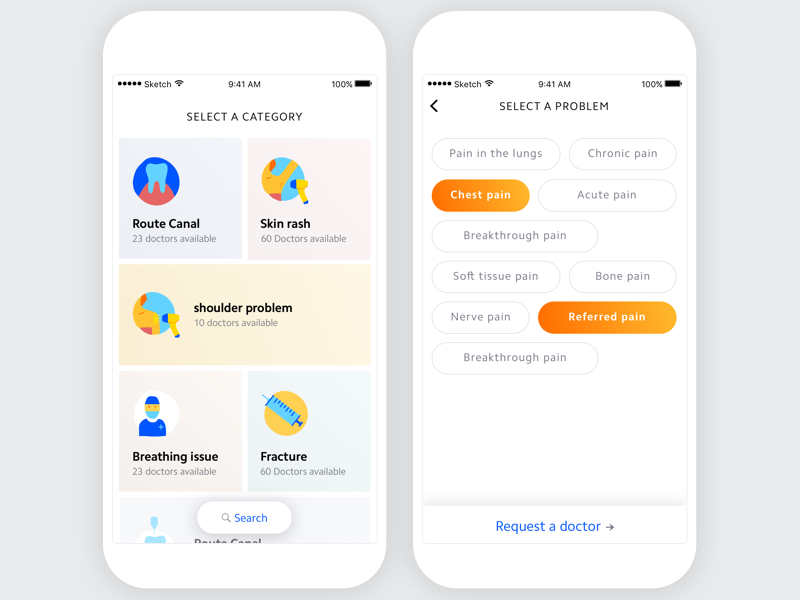
Certified physicians offer their services for urgent care, chronic conditions, preventive medicines, medical advice, etc for both medical care and mental health.
The app could also be helpful in non-emergency situations like flu and cold, respiratory issues, allergies, back pain, and UTI.
2. HealthTap:
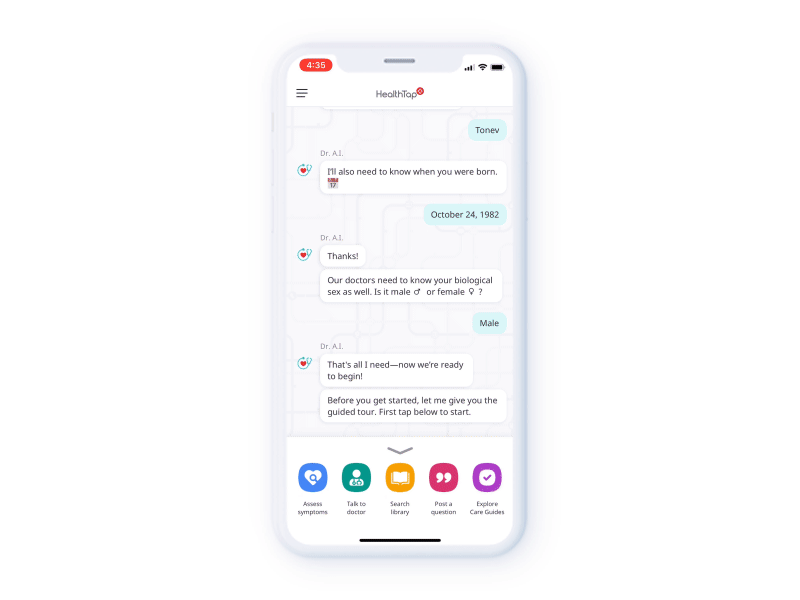
Source: dribbble.com/joshshiau
The application allows a patient to fix a virtual medical appointment with a doctor or to get some answers to their questions. It provides a convenient way to access healthcare from real doctors for 24*7, through consultations via video, voice or text. The app also has a knowledge library of around 700,000 topics and articles for people to read and learn about healthcare on their own.
It uses an AI-powered symptom checker for one-to-one recommendations and guidance.
3. Microsoft HealthVault:
Microsoft HealthVault is a digital service as well as a mobile app that offers a patient the freedom to keep their medical records updated and safe. The patients can also share these records with digital professionals securely in the time of need. The system is exceptionally suitable for patients with chronic diseases as they can keep a proper track of their routine health metrics.
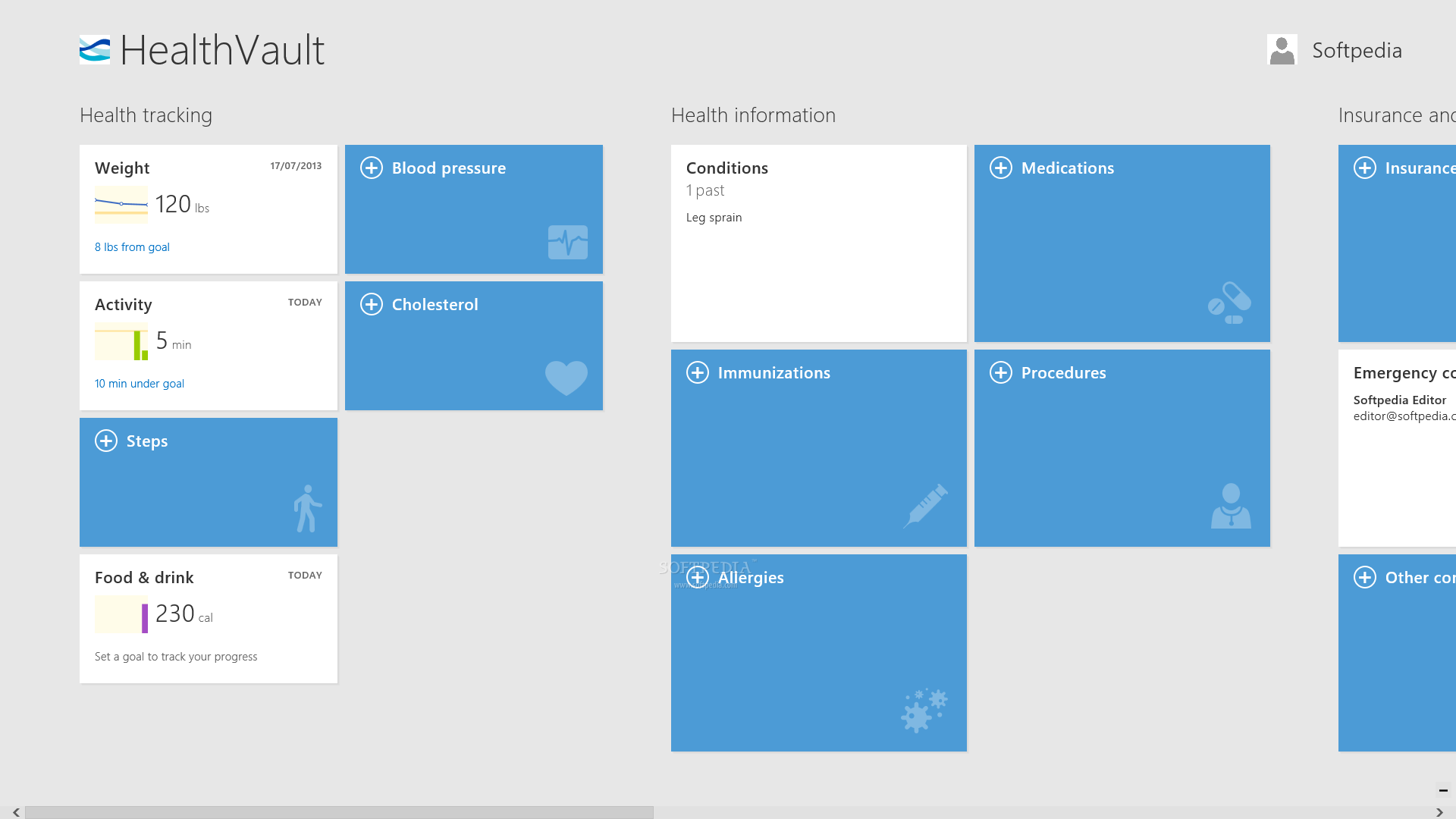
It also allows patients to set healthcare goals, track progress, and discover health trends.
Concluding View
Healthcare at home sure has a lot of potential but it can only be leveraged if the technologies are utilized in an effective manner.
Crucial data such as patient history should be managed properly and researched for insights and understanding without compromising its security.
People need to believe in technologies in order to adapt and use them in daily lives. Trending names like Blockchain and Artificial intelligence can bring a revolution in the healthcare industry with emerging use-cases and a proper understanding on how they can be used at their best for patients, doctors as well as the overall healthcare ecosystem.

